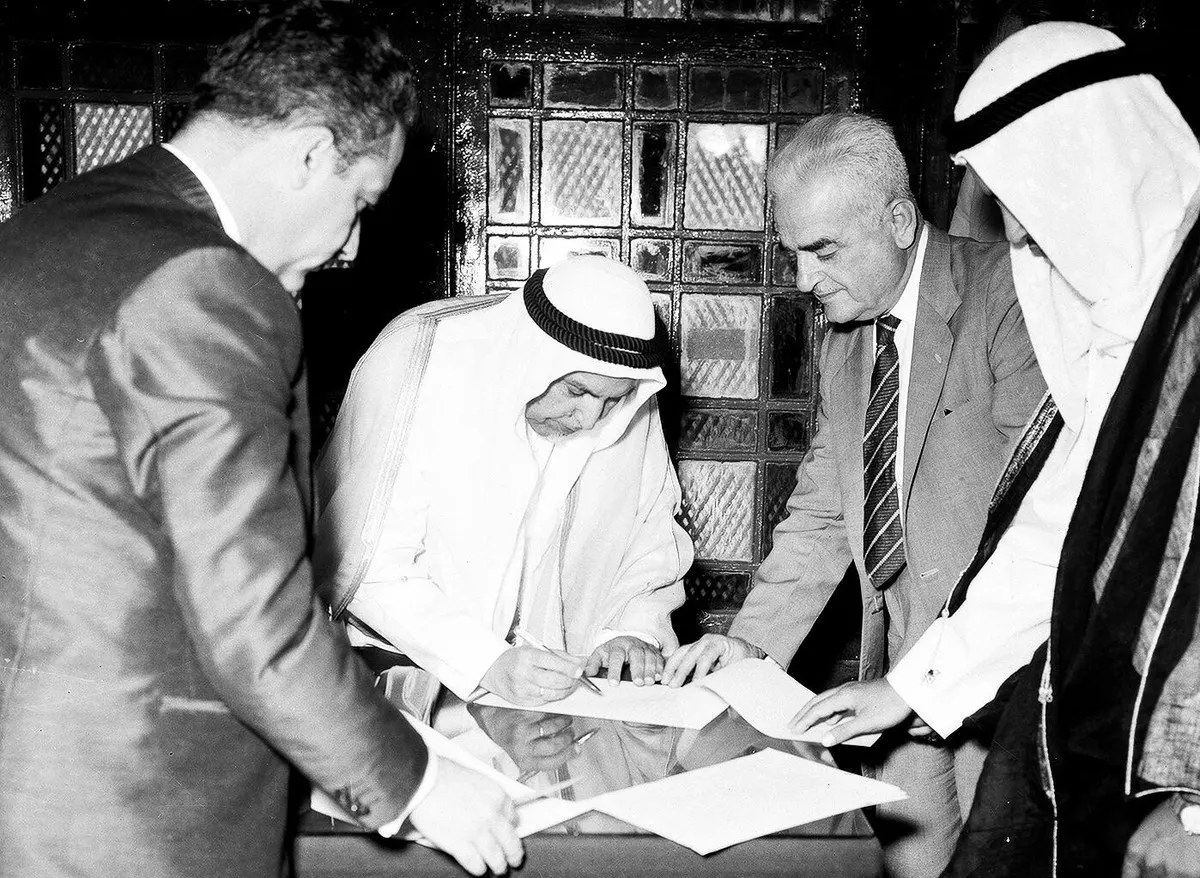19/06/2025
19/06/2025

KUWAIT CITY, June 19: Kuwait marks the 64th anniversary of its independence today, commemorating a historic moment that signified the country’s emergence as a fully sovereign state and the beginning of a transformative journey defined by dignity, progress, and national pride.
On June 19, 1961, the late Amir Sheikh Abdullah Al-Salem Al-Sabah officially declared the end of the British protectorate agreement, paving the way for Kuwait to become an independent nation with full authority over its land and resources. This historic milestone laid the foundation for political autonomy and a modern renaissance that would guide the country's future.
Describing the occasion as one of Kuwait’s most pivotal turning points, citizens recall the remarkable achievements accomplished over the past six decades. These milestones reflect the success of strategic planning and visionary leadership committed to the development and prosperity of the country and its people. Kuwait has also earned a prominent role on the regional and international stage, particularly for its humanitarian contributions.
The nation’s steady progress continues under the wise leadership of His Highness the Amir Sheikh Mishal Al-Ahmad Al-Jaber Al-Sabah and His Highness the Crown Prince Sheikh Sabah Al-Khaled Al-Hamad Al-Sabah. Their efforts have strengthened Kuwait’s domestic growth and its global diplomatic presence through a balanced policy of preventive diplomacy.
Reflecting on the historic declaration, Sheikh Abdullah Al-Salem addressed the nation on the day of independence, stating: "On this auspicious day of our beloved homeland... we move from one stage to another in the stages of history, turning with the dawn a page of the past... to open a new page represented by this agreement, by virtue of which Kuwait gained its full independence and complete sovereignty."
Three years later, on May 18, 1964, a decree was issued merging National Day with Accession Day, marking Sheikh Abdullah Al-Salem’s rise to power, which is now observed annually on February 25.
The path to independence was not spontaneous but the result of deliberate efforts by Sheikh Abdullah Al-Salem since his accession in 1950. Recognizing the nation's potential, he worked toward achieving independence and enacting a constitution. This culminated in an Amiri Decree issued on August 26, 1961, to hold elections for a Constituent Assembly tasked with drafting a constitution based on democratic principles. Within nine months, the Assembly completed a 183-article document that established the legal and institutional foundations for Kuwait’s democratic governance.
Following independence, Kuwait swiftly passed 43 civil and criminal laws, including legislation on nationality, currency, passports, and administrative regulations. A separate Amiri Decree was issued to organize the judiciary, ensuring comprehensive jurisdiction over domestic legal matters.
Internationally, Kuwait made its presence felt by joining numerous regional and global organizations. The UN Security Council began reviewing Kuwait’s membership application on November 30, 1961, and on May 14, 1963, Kuwait officially became the 111th member of the United Nations.
Even before independence, Kuwait had a well-established administrative structure, with departments in public works, health, education, telecommunications, electricity, water, social affairs, endowments, and media. These departments were instrumental in supporting the young nation’s rapid development and institutional expansion.
Post-independence, Kuwait adhered to the principles of international legitimacy— rejecting aggression, protecting human rights, preserving national sovereignty, and advocating non-interference in the internal affairs of other nations. The country also strongly supported the role of the United Nations in promoting global peace and security.
Today, 64 years after its independence, Kuwait continues to advance comprehensive development strategies at the national level while maintaining a foreign policy grounded in moderation, cooperation, and peaceful conflict resolution. It works closely with regional and international partners to prevent disputes and promote stability.
Kuwait’s independence stands as a testament to the determination of its people, who believed in their right to freedom and worked to transform that vision into reality. As the nation honors this legacy, the responsibility now lies with future generations to preserve and build upon it — recognizing that true nation-building is sustained not only by remembering the past, but through dedicated effort toward a stronger, brighter future.


